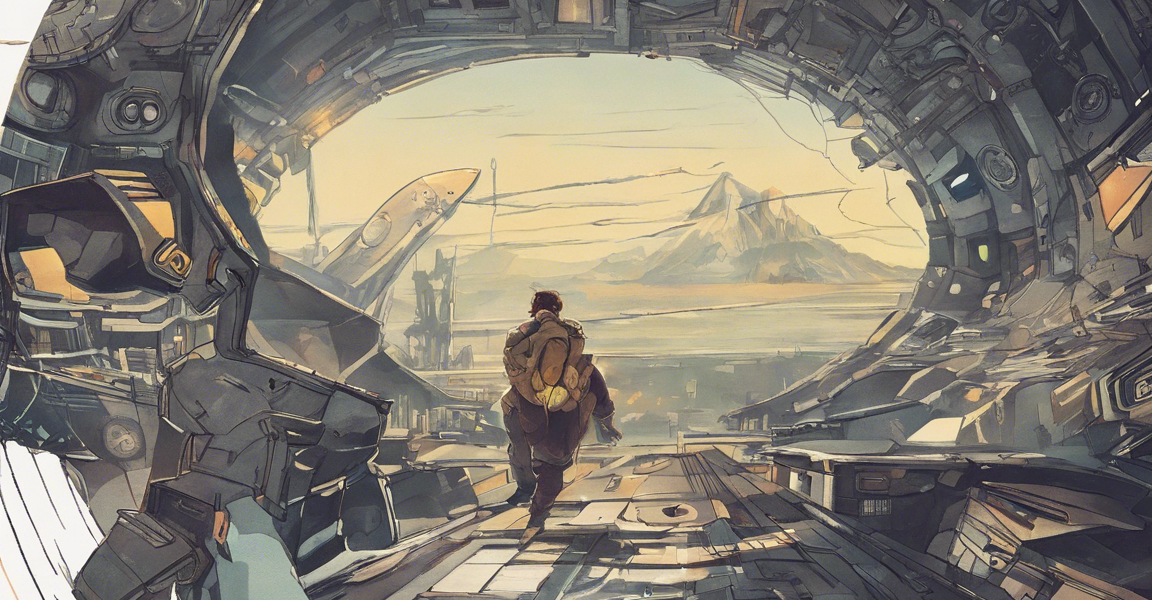The human spirit has always been fueled by a deep-seated curiosity and a relentless drive to explore the unknown. From the earliest seafaring expeditions to the conquest of outer space, exploration has been a defining aspect of our species. The call to venture into uncharted territory, to push the boundaries of what is known and discover new horizons, is ingrained in our DNA.
In today’s world, exploration takes on many forms. While the physical frontiers of our planet have largely been mapped and explored, there are still vast areas of knowledge, creativity, and experience waiting to be discovered. Whether it’s delving into the depths of the ocean, embarking on a cultural adventure in a foreign land, or pushing the limits of scientific discovery, the spirit of exploration continues to drive us forward.
The Evolution of Exploration
Exploration has come a long way since the days of ancient mariners navigating by the stars. With advances in technology, we now have the ability to explore the far reaches of our universe, from the surface of Mars to the depths of the ocean floor. Robots and drones can venture into hazardous environments, mapping and collecting data in places too dangerous for humans to tread.
But exploration is not just about physical journeys. It also encompasses intellectual and creative pursuits. Artists, writers, scientists, and thinkers of all kinds are constantly pushing the boundaries of what is known and understood. They venture into the realms of imagination, innovation, and discovery, seeking out new ideas, insights, and perspectives.
The Power of Curiosity
At the heart of exploration is curiosity – the insatiable desire to seek out the unknown, to ask questions, and to learn. Curiosity is what drives us to venture beyond the familiar and comfortable, to challenge ourselves and grow. It is a powerful motivator, inspiring us to take risks, overcome obstacles, and expand our horizons.
In the words of pioneering astronaut Neil Armstrong, “Mystery creates wonder and wonder is the basis of man’s desire to understand.” It is this sense of wonder, this thirst for knowledge and understanding, that propels us forward on our explorations, both literal and metaphorical.
The Thrill of Discovery
One of the most exhilarating aspects of exploration is the thrill of discovery – the moment when we uncover something new, something unexpected, something that changes our perspective on the world. Whether it’s stumbling upon a hidden waterfall in the jungle, making a breakthrough in scientific research, or unlocking the secrets of a long-lost civilization, the feeling of discovery is unlike any other.
But exploration is not without its challenges. It requires courage, determination, and a willingness to embrace the unknown. It means stepping out of our comfort zones, taking risks, and being open to failure. Yet it is through these challenges that we grow, learn, and ultimately, discover.
The Future of Exploration
As we stand on the cusp of a new era in human history, the possibilities for exploration are greater than ever before. With advances in technology such as virtual reality, artificial intelligence, and space travel, we have the opportunity to explore realms beyond our wildest dreams. From colonizing other planets to unlocking the mysteries of the human mind, the future of exploration is limited only by our imagination.
But no matter how far we venture, no matter how vast the unknown, one thing will always remain constant – the human spirit of exploration. It is this spirit that has driven us to conquer mountains, cross oceans, and journey to the stars. And it is this spirit that will continue to inspire us to push the boundaries of what is possible, to seek out new frontiers, and to boldly go where no one has gone before.
Frequently Asked Questions (FAQs)
Q: What is the importance of exploration in today’s world?
A: Exploration is essential for expanding our knowledge, pushing the boundaries of human understanding, and fostering innovation and discovery.
Q: How can I cultivate a spirit of exploration in my own life?
A: To cultivate a spirit of exploration, stay curious, step out of your comfort zone, be open to new experiences, and embrace challenges and uncertainty.
Q: What are some famous historical explorations that have shaped the world?
A: Examples include Marco Polo’s travels to the Far East, Christopher Columbus’s voyages to the Americas, and the Apollo moon missions.
Q: How has technology changed the way we explore?
A: Technology has revolutionized exploration, enabling us to delve into new frontiers, map uncharted territories, and collect data in remote and hazardous environments.
Q: What challenges do explorers face in their quest for discovery?
A: Explorers face challenges such as extreme weather conditions, physical dangers, logistical hurdles, cultural barriers, and mental and emotional stresses.




